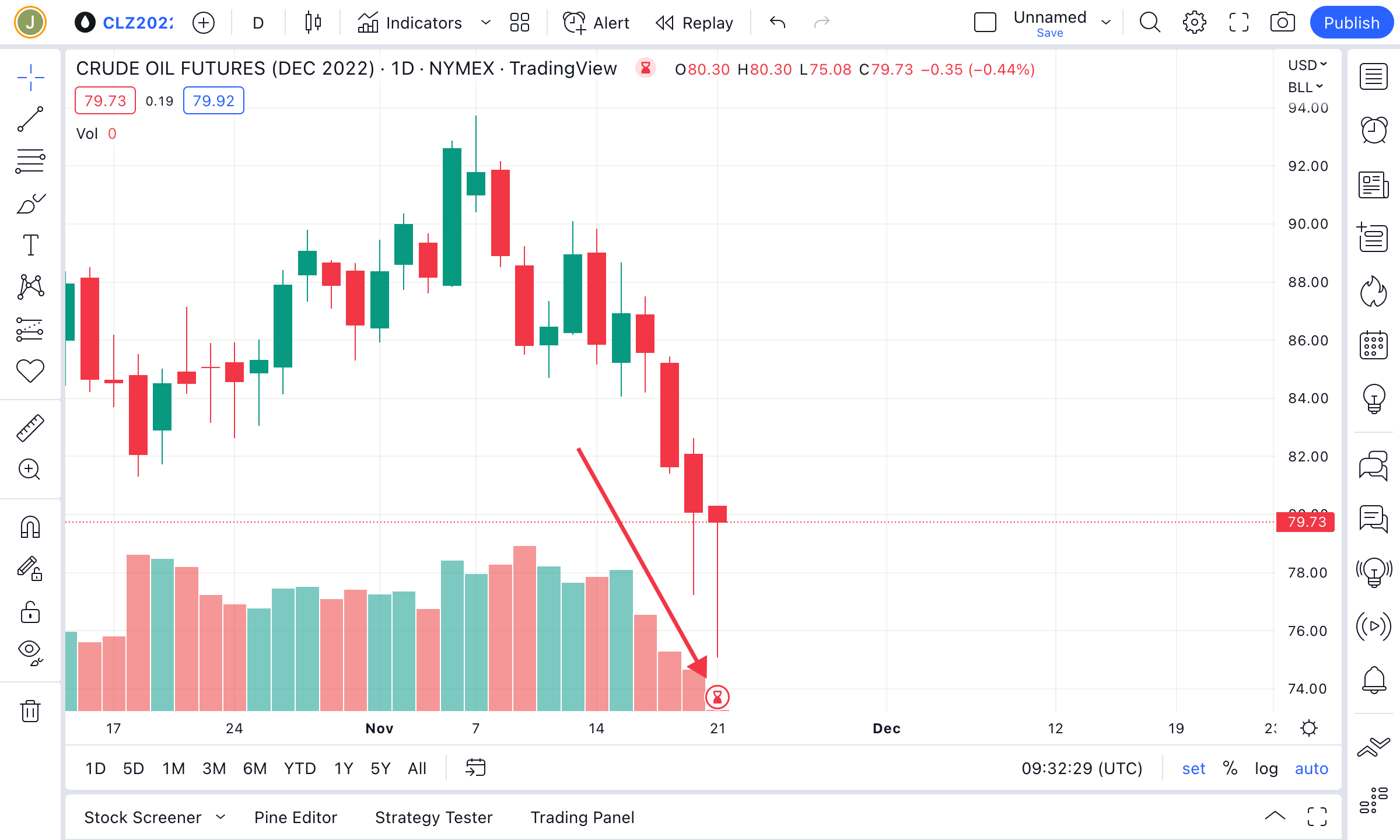Did you know that the only thing more certain than a cat ignoring you is the expiration date of a futures contract? Understanding futures contracts and their expiration dates is crucial for any trader looking to navigate the complexities of this market. In this article, we’ll break down what futures contracts are, their significance, and how expiration dates influence trading strategies. You'll learn about the implications of expiration, different types of dates, and the risks involved, as well as effective rollover strategies to mitigate losses. We’ll also clarify the difference between cash settlement and physical delivery, helping you manage your position effectively. Join us at DayTradingBusiness as we unravel these essential concepts to enhance your trading approach.
What are futures contracts and how do they work?
Futures contracts are agreements to buy or sell an asset at a predetermined price on a specific future date. They are commonly used in commodities, currencies, and financial markets.
When you enter a futures contract, you commit to the future exchange of an asset, like oil or gold. If you buy a contract, you expect the asset's price to rise; if you sell, you anticipate it will fall.
Expiration dates are crucial; they determine when the contract must be settled. On the expiration date, you either fulfill the contract by exchanging the asset or settle in cash, depending on the contract type. This mechanism allows traders to hedge risks or speculate on price movements.
What is the significance of expiration dates in futures contracts?
Expiration dates in futures contracts are crucial because they determine the final day a contract can be traded and when the underlying asset must be delivered or settled. They create a timeline for traders, influencing market strategy and risk management. As the expiration date approaches, price volatility often increases, reflecting the urgency to settle positions. Understanding these dates helps traders make informed decisions about entering or exiting positions and managing potential losses.
How do expiration dates affect trading strategies?
Expiration dates impact trading strategies by defining the timeline for futures contracts. Traders must consider these dates to manage risk and optimize profits. Approaching expiration, contracts may experience increased volatility and liquidity. Some strategies involve rolling positions to avoid expiration, while others focus on capturing price movements leading up to the date. Understanding how expiration affects supply, demand, and market sentiment is crucial for effective futures trading.
What happens when a futures contract expires?
When a futures contract expires, the holder must either settle the contract or roll it over to a new contract. If it's a cash-settled contract, the difference between the contract price and the market price is settled in cash. For physically settled contracts, the holder must either buy or sell the underlying asset at the contract's specified price. Failing to act can result in automatic settlement, which may not align with the trader's intentions.
How can I determine the expiration date of a futures contract?

To determine the expiration date of a futures contract, check the contract specifications provided by the exchange where the contract is listed. Typically, expiration dates are clearly stated in the contract details. You can also find this information on trading platforms or financial websites that track futures markets. Additionally, futures contracts usually expire on a specific day of the month, often the last trading day before the contract month ends.
What are the different types of expiration dates for futures contracts?
Futures contracts have several types of expiration dates:
1. Monthly Expiration: Most common; contracts expire on a specific day each month, typically the third Friday.
2. Quarterly Expiration: Contracts expire at the end of each quarter (March, June, September, December).
3. Weekly Expiration: Some futures have weekly expirations, ending on specific days of the week.
4. End-of-Month Expiration: Contracts that expire on the last trading day of the month.
5. Custom Expiration: Certain contracts allow for custom expiration dates based on the agreement between parties.
Each type affects trading strategies and positions differently.
How do rollover strategies work with futures contracts?
Rollover strategies in futures contracts involve closing a position in a near-month contract and opening a position in a longer-dated contract before expiration. This helps maintain exposure to the underlying asset without taking delivery. Traders often roll over to avoid settlement, capture price movements, or manage cash flow. The process typically occurs close to the expiration date, ensuring minimal disruption in trading.
What are the risks associated with futures contract expiration?
The risks associated with futures contract expiration include:
1. Market Volatility: Prices can fluctuate widely as expiration approaches, leading to unexpected losses.
2. Liquidity Issues: As contracts near expiration, trading volume may drop, making it harder to exit positions without significant price impact.
3. Delivery Risk: If holding a contract to expiration, you may be required to accept delivery of the underlying asset, which can lead to additional costs or complications.
4. Margin Calls: If the market moves against your position, you may face margin calls, requiring additional funds to maintain your position.
5. Opportunity Cost: Being locked into a contract until expiration may prevent you from capitalizing on more favorable trading opportunities.
Understanding these risks is crucial for effective futures trading.
How can I avoid losses at expiration in futures trading?
To avoid losses at expiration in futures trading, consider these strategies:
1. Monitor Your Positions: Keep a close watch on your futures contracts as expiration approaches.
2. Set Stop-Loss Orders: Implement stop-loss orders to limit potential losses.
3. Roll Over Contracts: If you want to maintain your position, roll over your contracts to the next expiration date before they expire.
4. Understand Margin Requirements: Ensure you have sufficient margin in your account to avoid forced liquidation.
5. Stay Informed: Follow market trends and news that may affect your positions right before expiration.
6. Plan Your Exit Strategy: Have a clear exit strategy in place before entering a trade, including both profit targets and loss thresholds.
By applying these practices, you can mitigate risks associated with futures contract expirations.
How Do Futures Contracts Work in Day Trading and What Are Their Expiration Dates?
Futures in day trading are standardized contracts to buy or sell an asset at a predetermined price on a specific future date. They allow traders to speculate on price movements or hedge against risks. Expiration dates are critical as they determine when the contract must be settled, influencing trading strategies and potential profits.
Learn more about: What Are Futures in Day Trading?
Learn about How to Choose the Right Futures Contracts for Day Trading
What does "settlement" mean in the context of futures expiration?

In the context of futures expiration, "settlement" refers to the process of finalizing the obligations of the futures contract. This occurs when the contract reaches its expiration date. Settlement can be either physical, where the actual asset is delivered, or cash, where the difference between the contract price and the market price is paid.
How do I trade futures contracts before expiration?
To trade futures contracts before expiration, follow these steps:
1. Open a Trading Account: Choose a broker that offers futures trading and set up your account.
2. Research Contracts: Identify the futures contracts you want to trade based on market analysis.
3. Place an Order: Use your trading platform to place buy or sell orders for the contracts. You can specify market orders for immediate execution or limit orders to set your desired price.
4. Monitor Positions: Keep an eye on market movements and your position’s performance.
5. Close the Position: Before expiration, you can either sell your long contracts or buy back your short contracts to realize gains or cut losses.
Remember, trading before expiration means you're dealing with time decay and potential volatility. Always manage your risk.
What role does liquidity play near expiration dates?

Liquidity near expiration dates is crucial in futures contracts. It affects how easily traders can enter or exit positions without significantly impacting prices. As expiration approaches, liquidity can decrease, leading to wider bid-ask spreads and increased volatility. Traders may face challenges in executing trades at desired prices, which can result in slippage. Additionally, the convergence of futures prices to the underlying asset’s price intensifies liquidity needs, making it vital for effective risk management. Overall, liquidity is essential for smooth trading and accurate pricing as contracts near expiration.
How can I manage my position leading up to expiration?
To manage your position leading up to expiration in futures contracts, start by closely monitoring market trends and price movements. Consider rolling your position to a later contract if you want to maintain your market exposure. Set clear exit strategies based on your risk tolerance—decide whether to take profits or cut losses before expiration. Use stop-loss orders to protect against sudden market shifts. Finally, stay informed about any upcoming economic reports or events that could impact prices.
What is the difference between cash settlement and physical delivery?
Cash settlement involves a payment in cash based on the difference between the contract price and the market price at expiration, while physical delivery requires actual transfer of the underlying asset. In cash settlement, you don’t own the asset; you merely settle the profit or loss. With physical delivery, you receive the actual commodity or security specified in the contract.
How do expiration dates vary across different futures markets?
Expiration dates for futures contracts vary by market and commodity. Each futures market has specific rules governing contract expiration, typically aligning with the underlying asset. For example, agricultural futures like corn may expire monthly, while energy futures like crude oil often have quarterly expirations. Financial futures, such as those for stock indices, may follow a standardized quarterly cycle. Additionally, some markets offer longer-term contracts, allowing for expiration dates years in advance. Always check the specific contract specifications for accurate expiration details.
What are the common misconceptions about futures contract expiration?
Common misconceptions about futures contract expiration include the belief that all contracts must be physically delivered, that expiration always leads to losses, and that traders can’t exit before expiration. In reality, many futures are settled in cash, not through physical delivery. Traders often close their positions before expiration to avoid complications. Additionally, expiration doesn't guarantee a loss; it can also result in profits depending on market movement. Understanding these points can help traders navigate expiration more effectively.
Conclusion about Understanding Futures Contracts and Expiration Dates
In summary, understanding futures contracts and their expiration dates is crucial for effective trading strategies. By recognizing the significance of expiration dates, traders can better manage their positions, mitigate risks, and make informed decisions. As you navigate the complexities of futures trading, leveraging insights from resources like DayTradingBusiness can enhance your approach and improve your overall trading success.